Global Health Emerging Scholars Fellowship Program
The Global Health Emerging Scholars (GHES) Program is part of the NIH Fogarty Global Health Programs for Fellows and Scholars.
*Applications for the 2025-2026 fellowship year are closed*
The Global Health Emerging Scholars (GHES) program is a 12-month mentored global health research training fellowship program. The GHES program was established in 2012 and is comprised of four US partner institutions – Yale University, the University of California at Berkeley, Stanford University, and the University of Arizona – that together have collaborations in 17 LMICs representing Africa, Latin America, the Caribbean, South and Southeast Asia, the Middle East, Eastern Europe, and Oceania.
The program is designed for pre- and post-doctoral trainees from the U.S. and post-doctoral trainees from collaborating LMICs who are dedicated to pursuing a career in global health and want to gain a solid scientific research foundation in a collaborative environment to develop into productive, independent researchers in global health. GHES offers hand-on opportunities to conduct research projects relevant to the health priorities of stakeholders and partners at established medical and research institutions and project sites in collaborating LMICs while being mentored by dedicated experts.
GHES is one of seven consortia funded by the Launching Future Leaders in Global Health (LAUNCH) training initiative. The program is sponsored by the Fogarty International Center (FIC) and several collaborating Institutes and Centers at the National Institutes of Health (NIH).
Mission
The mission of the GHES program is to train new communities of researchers, educators, and professionals who are prepared to address emerging global health challenges. The program has historically focused on health challenges that arise from rapid urbanization and social disparities prevalent in the world’s growing informal settlements, commonly known as slums. Rather than address one disease at a time, our program uses a comprehensive, multidisciplinary, and integrated approach to training and research to tackle the complex health issues common in these settings. We encourage research on the challenges of delivering accessible and high-quality healthcare within resource-limited settings and research on interventions that promote the effective management of scarce resources and innovative solutions to improving health services. Chronic and noncommunicable diseases, HIV/STIs and other infectious diseases, environmental health, maternal and child health, intentional and unintentional injuries, trauma, and mental health are additional areas of research that are supported under this program.
Questions? Please contact: Purnima Madhivanan, Program PI (pmadhivanan@arizona.edu); Roxanna Apaez, Program Manager (rapaez@arizona.edu)
University of Arizona 2023-2024 Program Fellows
PREDOCTORAL STUDENT SCHOLAR
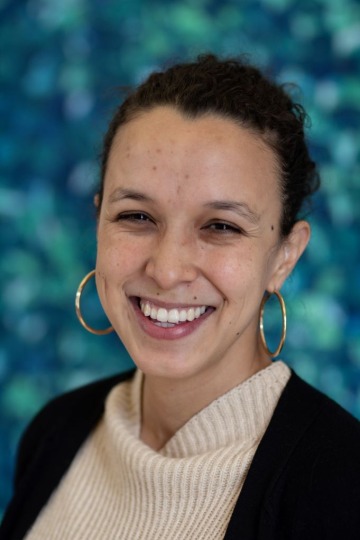
Maiya Block Ngaybe, MPH (PhD Candidate)
Fellowship Site: Makerere University, Kampala, Uganda
Research: Factors associated with prospective uptake of a preventative HIV vaccine among at-risk populations in Uganda: A mixed-methods study
Maiya Block Ngaybe is currently pursuing a PhD in Health Behavior Health Promotion at the University of Arizona Mel and Enid Zuckerman College of Public Health (MEZCOPH). She received her Master’s in Public Health in Health Behavior Health Promotion from the MEZCOPH and would like to one day work in Sub-Saharan Africa and/or home in Southern Arizona promoting health in her community, and continuing to improve the efficacy of health behavior programs around the world.
Maiya has held teaching roles in the Peace Corps in Cameroon for Middle School and High School, taught International Baccalaureate Chemistry for Middle School and High School at the American School of Yaoundé, was the Teaching Assistant for courses on Personal Health and Wellness, and Public Health Approaches to Mental Disorders in the US. She also helped coordinate the Paul D. Coverdell Fellowship Program as the Graduate Assistant and designed a trainer certification manual for the Southwest Institute for Research on Women’s project called Bridges to Wellness. Other positions Maiya has held include Site Lead at an asylum-seeker refuge called Casa Alitas, Vice-President of the international Friends of Cameroon organization, Project Coordinator for the Alliance for Vaccine Literacy at the University of Arizona, qualitative analysis Consultant at TANGO International, Student Ambassador for the Mel and Enid Zuckerman College of Public Health, and previous Co-Chair of the annual Social Justice Symposium at the MEZCOPH. She most recently was the Community Outreach Professional for the AZHEALTHTXT project at the College of Public Health alongside teaching Personal Health and Wellness as an Adjunct Lecturer at the University of Arizona.
In her free time, she likes to raise chickens, play piano, play board games with family and friends, do yoga, and go for runs.
LMIC POSTDOCTORAL FELLOW
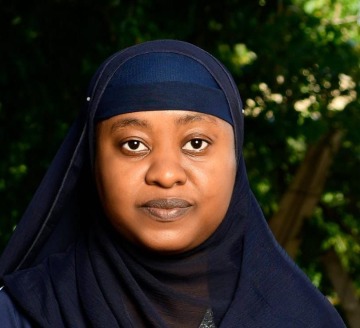
Maryam Jamila Ali, MBBS, FWACS, FMCOG
Fellowship Site: University of Jos, Nigeria
Research: HPV vaccines, Adolescent and young women living with HIV
Dr. Maryam Jamila Ali is a junior faculty and clinician at the University of Jos, Nigeria, and will spend her Global Health Equity Scholars fellowship year at the University of Jos under the co-mentorship of Dr. Musa Jonah, MD, PhD and Dr. Purnima Madhivanan MD, PhD.
Dr. Ali is currently a master’s candidate in Genomics and Bioinformatics at the University of Jos working on the Prevalence of HIV and other sexually transmitted infections among brothel-based sex workers using multiplex PCR in Nigeria. She earned her Bachelor of Medicine and Surgery from Ahmadu Bello University Zaria, Nigeria in 2009, and earned her fellowship in Obstetrics and Gynaecologist at both the West African College of Surgeons and the National Post Graduate Medical College of Nigeria in 2019. Her dissertation during her fellowship was on the characterization of oncogenic HPV genotypes among HIV-positive and HIV-negative women with abnormal cervical cytology in Jos, North Central Nigeria.
In Jos, Dr Ali will work with adolescents and young women living with HIV to study factors associated with vaccine hesitancy or acceptability. She will also study the prevalence of Human Papillomavirus (HPV) infections and determine factors associated with the persistence or clearance of HPV using HPV self-sampling.
“I am excited about this opportunity and look forward to learning new skills, networking, and striving to become an independent global health researcher in the field of cancer prevention and treatment especially among women and underserved populations.”
POSTDOCTORAL FELLOW
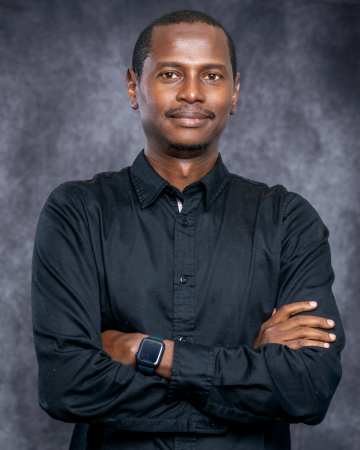
Auwal Abubakar, MBBS, MSc, DrPH
Fellowship Site: University of Jos, Nigeria
Research: Cervical cancer screening among women living with HIV/AIDS (WLWHA) in Plateau State, Nigeria
Dr. Auwal Abubakar, a graduate of the University of California, Berkeley with a Doctorate in Public Health, is currently engaged in a research project at the University of Jos, Nigeria. His work focuses on enhancing cervical cancer screening practices among women living with HIV/AIDS (WLWHA) in Plateau State, an effort aimed at addressing and reducing health disparities in this key demographic.
Before embarking on his current path, Dr. Abubakar led the Polio Emergency Operations Center (EOC) in Bauchi State, Nigeria, as the Incident Manager. His leadership was pivotal in achieving the eradication of polio in the region, contributing to Nigeria’s recognition as a polio-free country.
Auwal began his academic journey at the University of Maiduguri, Nigeria, where he obtained his MBBS, followed by an M.Sc. in Epidemiology and Biostatistics from the SRM Institute of Science and Technology in India. His educational endeavors have been underpinned by a deep-seated dedication to public health, particularly in terms of practice, education and research.
Outside of his academic and professional pursuits, Auwal has a variety of interests. He is an avid music enthusiast, enjoys traveling to new places, indulges in reading a broad range of literature, and maintains an active lifestyle through sports like ping-pong. Auwal also finds relaxation in watching movies and values the time spent with friends and family in these activities.
University of Arizona 2022-2023 Program Fellows
PREDOCTORAL STUDENT SCHOLAR
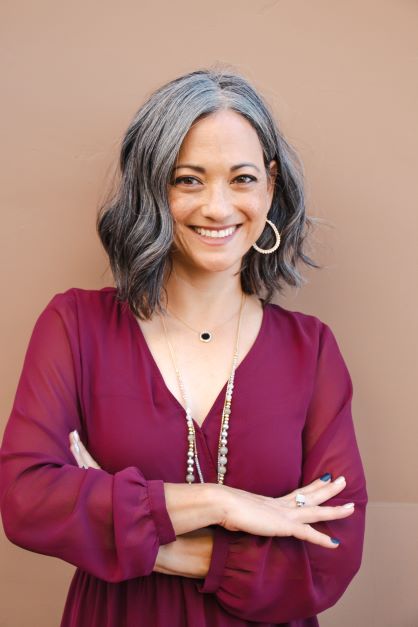
Lisa Labita Woodson, MPH (PhD Candidate)
Fellowship Site: Universidad Peruana Cayetano Heredia, Lima, Peru
Research: Adolescent Sexual and Reproductive Health
Lisa Labita Woodson is a third-year PhD Epidemiology candidate with a focus on Global Health. She spent her last year as a Fulbright Fogarty Scholar carrying out research on the effects of COVID-19 on adolescent pregnancy and educational attainment in the Amazon Basin of Peru. In the coming year as a GHES Fellow, she will pivot her research to study the feasibility of implementing an adolescent sexual and reproductive health intervention in remote communities of the Peruvian Amazon where she proposes to use the already established network of Community Health Workers through the organization Mamás del Río and peer educators. The intervention is based on the Diffusion of Innovation theory and behavior change models and she will measure its feasibility within the community using the following five areas of focus: acceptability, demand, implementation, practicality, and integration.
Lisa has an MPH from the University of Arizona and prior global health experience in Nepal as both a Peace Corps volunteer and Fulbright Scholar. She has also worked in Thailand with Planned Parenthood International, and in Senegal with Counterpart International and the University of Arizona. Within her home city of Tucson, she has worked as a teen advisor for Planned Parenthood – Southern Arizona Regional Health Center, an infectious disease epidemiologist for the Pima County Health Department, an Infection Preventionist for a local hospital, and most recently as a food security research analyst for TANGO International. She is excited to have the opportunity to blend her passion for global health and epidemiology through her research. Her future aims include creating career pathways for minority women in global health and continue advocating and promoting research that advances the rights of women, children, and other vulnerable populations, especially within LMICs, to equitable access to care.
LMIC POSTDOCTORAL FELLOW
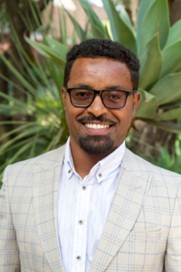
Biniyam Tefera Deressa, M.D. Specialty Certificate in Clinical Oncology
Fellowship Site: Addis Adaba University, Ethiopia
Research: Breast Cancer Patients in an Understudied Global Population
Dr. Biniyam Tefera Deressa will spend his fellowship year in Ethiopia at Addis Ababa University conducting a mixed-methods study investigating peer support, quality of life, resilience, treatment adherence, and HIV co-morbidity of breast cancer patients in an understudied global population. He will be co-mentored by Professor Teferi Gedif Fenta and Dr. Purnima Madhivanan
Cancer is one of the global health inequities of our time, with low and middle-income countries (LMICs) accounting for more than 70% of cancer deaths, despite high-income countries having a higher incidence (Sung, 2021). In 2020, female breast cancer (BC) surpassed lung cancer as the most common cancer worldwide (Sung, 2021). In Ethiopia, BC is the most frequent malignancy, comprising one-third (33%) of all cancer cases (Timotewos, 2018). Cancer is severely understudied and addressed in Ethiopia: the nation’s first National Cancer Control Plan was formulated in 2015, and fewer than 25 oncologists and only two radiotherapy centers exist for an entire population of more than 115,000,000 (Lesley, 2021).
A doctoral candidate in Epidemiology at MEZCOPH, Habila is also currently working towards a Master of Science in Health and Pharmaceutical Outcomes in the College of Pharmacy. She earned her BS in Psychology from Pacific Lutheran University and completed her MPH from MEZCOPH in 2019. She is a graduate research associate with Dr. Beth Jacobs as part of the CoVHORT Genome Wide Association Study.
With the limited available resources dedicated to direct prevention and treatment of cancer, survivors’ lived experiences and quality of life (QOL) are often overlooked. Previous research has shown that a majority of patients, especially those with advanced stage disease, have pain, reduced emotional and sexual functioning, and significant financial difficulties (Hassen, 2019, Sibhat, 2019). Observing this gap and inspired by peer support groups for people living with HIV, an innovative BC patients and survivors support group was formed at the Adama Hospital Medical College Cancer Unit (AHMCCU) in October 2020 to address patients’ overlooked psychosocial challenges, and to build their resilience to cope with a life-altering medical diagnosis. Anecdotally, this first-of-its-kind group has improved the well-being of its 30 participants, however, no formal measure of the impact of the group has been evaluated to date.
This project will evaluate the impact of the group on participants’ QOL, resilience, and treatment adherence. Additionally, the lived experiences of one special patient population will be further explored: women living with HIV (WLHIV) and BC. There is limited understanding of HIV and BC co-morbidity, with some evidence demonstrating greater chemotherapy toxicity and worse overall survival for WLHIV compared to their HIV-negative counterparts (Brandão, 2021; Grover, 2017; Hurley, 2001). While they may face unique challenges, it is also plausible that WLHIV may in fact exhibit higher resilience and adherence to their cancer treatment. Mixed methods, including a quantitative questionnaire and qualitative interviews will be used to explore these ideas.
“My ultimate goal is to join a group of scientists who will conduct innovative research and use existing resources to improve global health and close the health inequality gap, particularly in low-income countries. During the one-year fellowship, I will gain the skills of designing, leading, and implementing independent research in the field of cancer prevention, treatment, and palliative care which could have a positive impact on the improvement of cancer care in my country and other low- and middle-income countries.”
University of Arizona 2021-2022 Program Fellows
POSTDOCTORAL FELLOWS
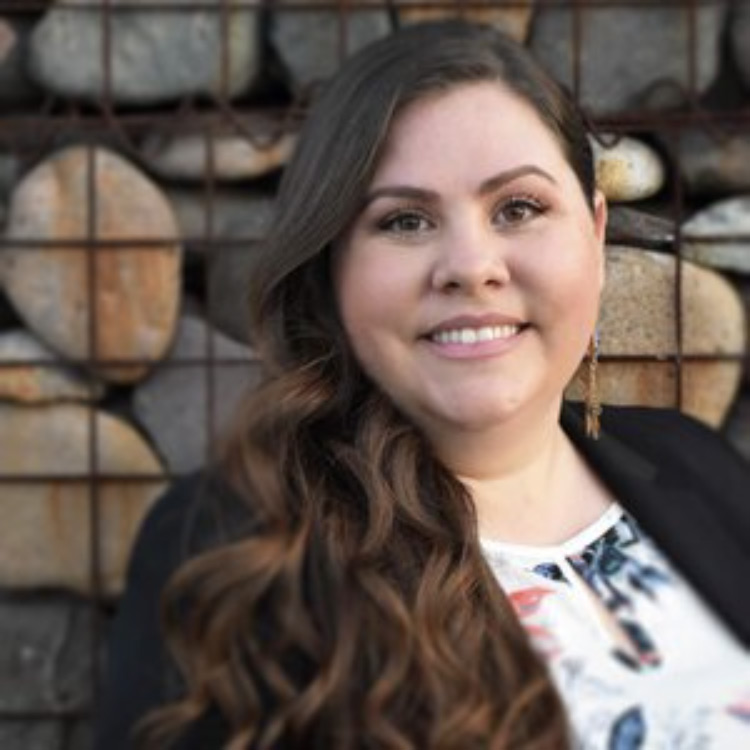
Breanne Lott, MPH, PhD
Fellowship Site: Addis Ababa University, Ethiopia
Research: Cervical Cancer Screening
Breanne Lott, PhD, MPH, will spend her Global Health Equity Scholars fellowship year in Ethiopia with Addis Ababa University, under the co-mentorship of Dr Dawit Worku Kassa, MD in Ethiopia and Dr Purnima Madhivanan.
In Ethiopia, Dr. Lott will study community-based cervical cancer screening approaches such as home-based HPV self-sampling. After evaluating the screening preferences of women living with and without HIV, she will pilot an intervention to increase screening uptake. Breanne is excited about the opportunity to reduce the global impact of cervical cancer through improved screening programs.
Dr. Lott graduated from the Zuckerman College of Public Health at the University of Arizona with her PhD in Health Behavior Health Promotion in May, 2021. She started her educational journey at Arizona State University with a Bachelor of Arts in Global Health, then received her Masters of Public Health from the Zuckerman College of Public Health – Phoenix Campus. Breanne completed her dissertation on cervical cancer screening and prevention in Ethiopia, which began her passion for global health scholarship and served as a foundation for her GHES application.
"I really look forward to connecting with other global health researchers,"" says Lott, “We have already had the opportunity to network with other fellows from around the world. I hope to acquire new skills through this fellowship and learn more about the variety of career paths."" Dr. Lott has a passion for improving lives by using public health practices, as she says, "I am excited about women’s health and hope to contribute to this field by reducing global cancer burden through improved cervical cancer screening programs."
PREDOCTORAL STUDENT SCHOLARS
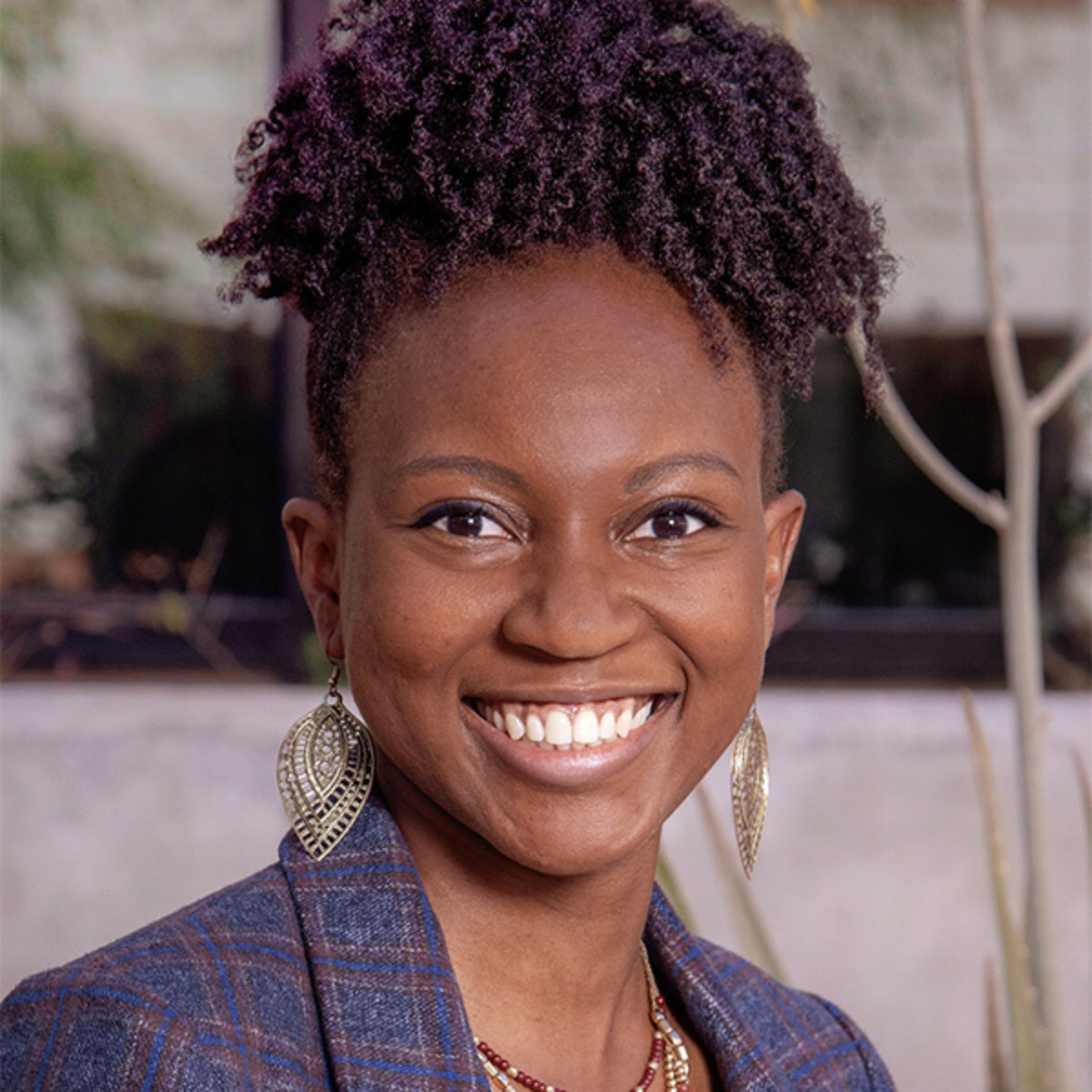
Magdiel Habila, MPH (PhD Candidate)
Fellowship Site: University of Jos, Nigeria
Research: Cervical Cancer Prevention
Magdiel Habila, MPH, PhD Candidate, will spend her Global Health Equity Scholars fellowship year at Jos University in Nigeria studying the barriers and implementation issues to cervical cancer screening uptake in Jos and the surrounding communities from patient and provider perspectives. She will work under the co-mentorship of Dr. Jonah Musa, MBBS, PhD in Nigeria, and Dr. Purnima Madhivanan.
Through her research project, Magdiel aims to identify barriers that patients face while seeking cervical cancer screenings as well as factors that facilitate their access to screenings. She will also consider how the COVID-19 pandemic has impacted their health seeking behaviors and use of services.
A doctoral candidate in Epidemiology at MEZCOPH, Habila is also currently working towards a Master of Science in Health and Pharmaceutical Outcomes in the College of Pharmacy. She earned her BS in Psychology from Pacific Lutheran University and completed her MPH from MEZCOPH in 2019. She is a graduate research associate with Dr. Beth Jacobs as part of the CoVHORT Genome Wide Association Study.
"This fellowship is an opportunity for me to learn from and work with researchers in my home country, to identify and address the barriers to health equity that Nigerian women face,"" says Habila, "All with the goal of making sustainable changes that will lead to improved health. This is an incredible opportunity to grow as a researcher and to give back to my community."
Her goal is to become a cancer epidemiologist who focuses on understanding and addressing barriers to health equity in cancer diagnosis and treatment among women living in Sub-Saharan Africa. "I decided to focus my research on cervical cancer because it is inexcusable to me that women in Nigeria and around the world die of a disease that is completely preventable simply because they lack access to preventative healthcare services," says Magdiel, "And I want to thank my mentors, Dr. Jacobs, Dr. Madhivanan, and Dr. Musa whose guidance and insight has been instrumental in designing my research project."
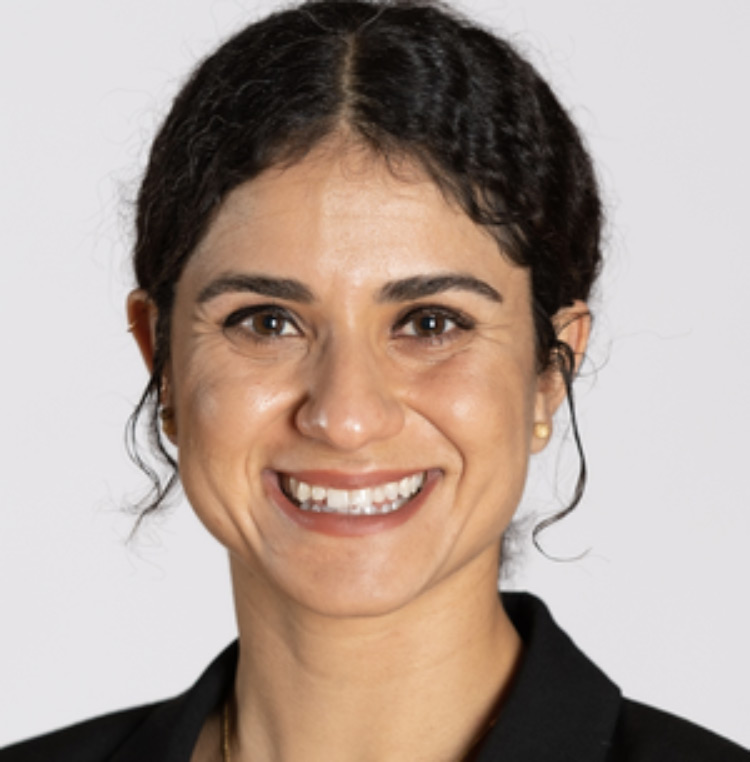
Tina Samsamshariat, MPH (MD Student)
Fellowship Site: Universidad Peruana Cayetano Heredia
Research: Maternal Child Health and COVID-19
Tina Samsamshariat, MPH, will spend her GHES fellowship year in Lima, Peru at Universidad Peruana Cayetano Heredia (UPCH) under the co-mentorship of Magaly Blas, MD, MPH, PhD and Dr. Purnima Madhivanan.
Through her research, Samsamshariat aims to understand the resilience and adaptation strategies of community health workers delivering maternal and neonatal care during the COVID-19 pandemic in Loreto, Peru. She will look at how the pandemic has affected external factors, such as limited resources, and transportation, as well as the impact on mental health.
During this research project she will utilize a community based participatory research strategy called Photovoice, a visual research methodology with the intention to foster social change by providing cameras to community health workers to photo document their personal experiences. Photovoice projects seek to empower participants and communities. "My project allows me to bring together public health, art/photography, policy, and health equity, which are all topics I am passionate about," she says.
Now in her fourth year at the University of Arizona College of Medicine – Phoenix, Tina brings a passion for emergency medicine, disaster relief, women’s health and policy to her fellowship. She earned her BS from University of California Los Angeles (UCLA) and MPH from the University of Southern California (USC). Her current focus is to develop complex healthcare systems at multilateral and community levels to better address changes in our built, sociopolitical, and natural environments. Looking forward to her career in global health, Tina envisions herself in a leadership role with a non-governmental organization (NGO) like Doctors without Borders or Partners in Health, or even starting her own organization that tackles modern issues in public health.
"I’m looking forward to making partnerships with community leaders and better understanding how COVID-19 is affecting populations around the world, says Samsamshariat, "many of our health victories over the past century have been public health victories, like washing our hands and vaccines. We have a tendency to look to technology as solving our problems, but simple public health solutions can have incredible impact on the health of populations. She believes that understanding how health equity, access to healthcare, and other socioeconomic factors impact people’s health will make her a better doctor.
LMIC POSTDOCTORAL FELLOWS
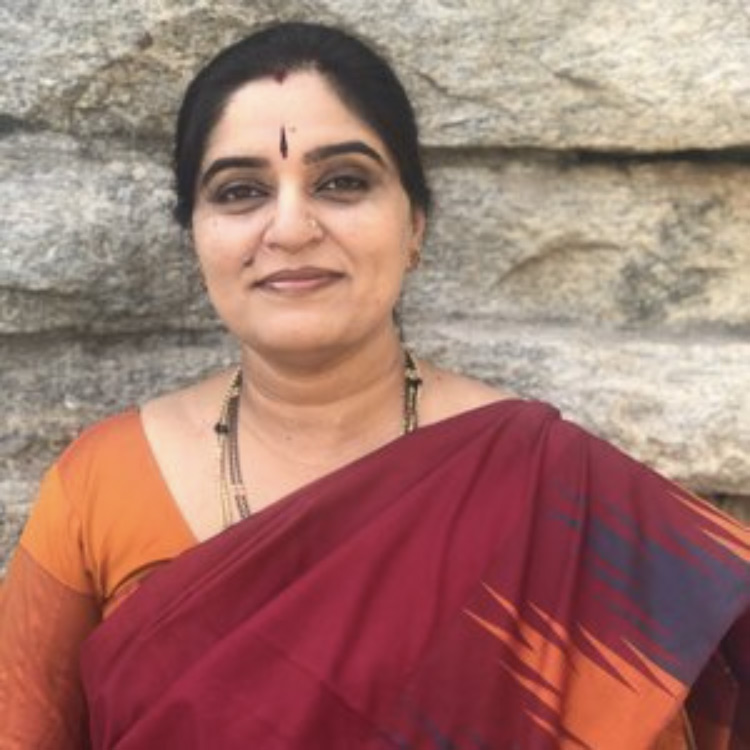
Arathi Rao, MBBS, MPH, PhD
Fellowship Site: Manipal Academy of High Education, India
Research: HIV and Cardiovascular Risk
Arathi Rao, MD, PhD, MPH, will spend her fellowship year in Udupi, India to research the lived experience of women who face the double burden of COVID-19 and cardiac disease using a mixed-method approach. She will be co-mentored by Judith Noronha, PhD, MSc, MPhil in India and Dr. Purnima Madhivanan.
For her fellowship, Dr. Rao will conduct her research in the local setting of Udupi, a coastal town in India, to better understand the health challenges faced by women during the COVID pandemic. The GHES experience has already connected her with a network of other global public health researchers, and Arathi hopes this fellowship experience will prepare her to become an independent researcher who can use data to help other women from low- and middle- income countries (LMICs).
Currently serving as Associate Professor and Coordinator of the MPH Program at Prasanna School of Public Health at Manipal Academy of Higher Education (MAHE) in India, Dr. Rao is working towards a postdoctoral fellowship at the Zuckerman College of Public Health, University of Arizona. Previously she was a practicing gynecologist, valuable experience that informs her ongoing interest in women's health.
"Women’s voices are unheard in patriarchal societies irrespective of literacy, employment and social status," says Rao, "I want to change that. I give regular talks on community radio about public health issues, with a special focus on maternal and child health. I was a practicing gynecologist and I chose a different path, to earn my MPH degree. The MPH completely transformed my perspective towards health as a clinician."
Dr. Rao is passionate about giving back to society and improving the lives of women in LMICs through qualitative research. Her career goal is to find social, context-based solutions to women's health issues in conservative patriarchal societies, both in India and across the globe.
Program Faculty
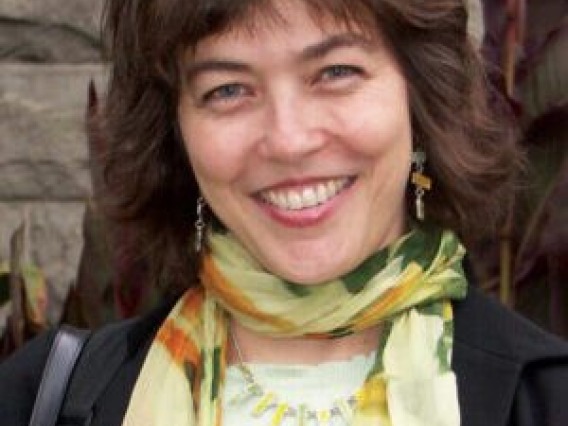
EVA HARRIS, PHD
GHES UC Berkeley Program Director
Professor, Infectious Diseases and Vaccinology
UC Berkeley
eharris@berkeley.edu
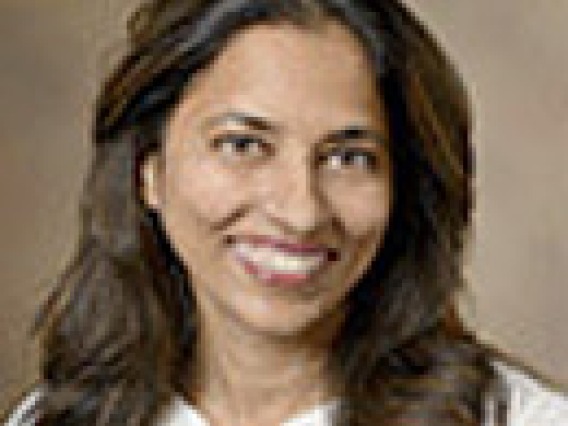
PURNIMA MADHIVANAN, MBBS, MPH, PHD
GHES University of Arizona Program Director
Associate Professor, Health Promotion Sciences
Zuckerman College of Public Health
University of Arizona
pmadhivanan@arizona.edu
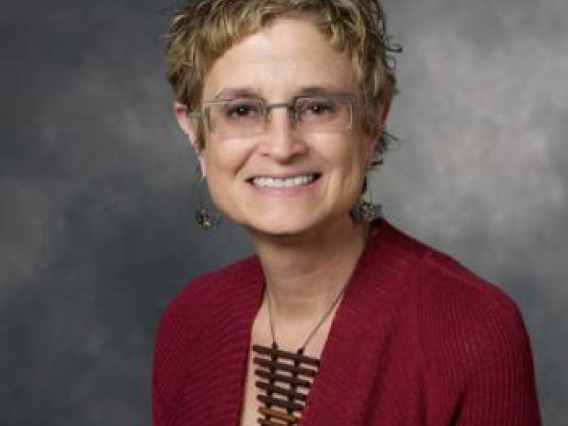
MICHELE BARRY, MD, FACP
GHES Stanford Program Director
Senior Associate Dean Global Health
Professor of Medicine
Stanford University
michele.barry@stanford.edu
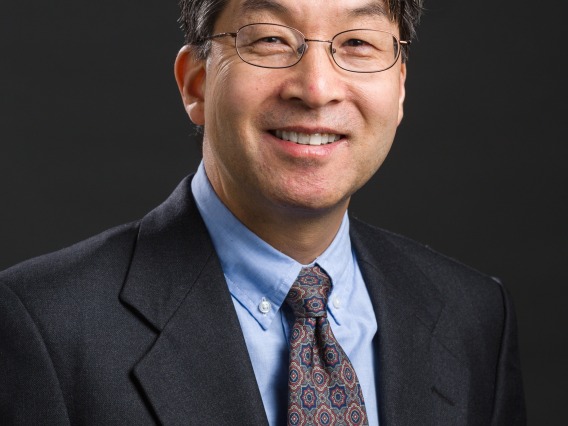
ALBERT KO, MD
GHES Yale Program Director
Chair, Epidemiology of Microbial Diseases
Professor of Medicine
Yale School of Public Health
albert.ko@yale.edu

